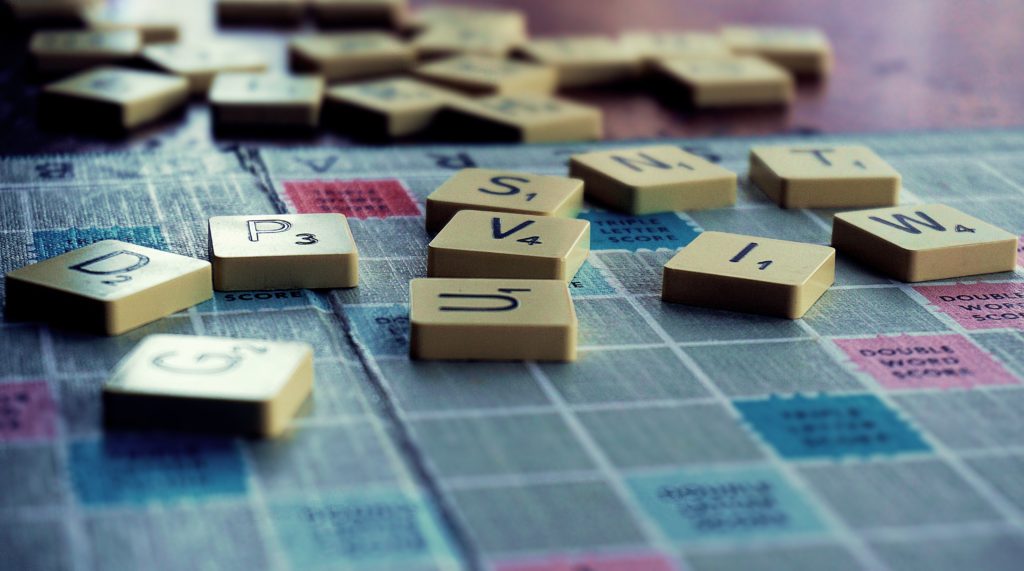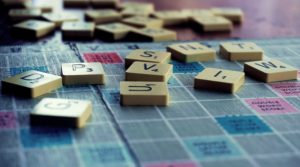
Spelling practice is probably one of the homework tasks that both parents and children dread. However, whether your child is trying to learn a list for a test or practising new rules or key words, there are lots of ways to make the process less of a chore.
The key to remembering anything new is to make it memorable. By using a few resources from around the house, learning the weekly spelling list can become much more enjoyable.
For all of the ideas below, you will need to have a list of words written on to individual cards or slips of paper. The games can be used over and over again with new sets of words each time. All games require at least two players.
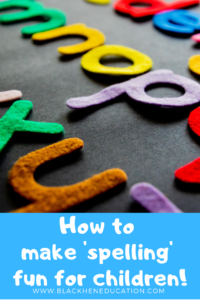
Noughts and Crosses:
- Draw a 4 x 4 grid. The aim of the game is to be the first player to have 4 of their symbols in a row, whether it is horizontally, vertically or diagonally.
- Shuffle the spelling cards & place them in a pile faced down.
- The first player (player A) chooses to use either X’s or O’s.
- Player A picks a card from the top of the spelling pile & reads it to player B.
- Player B must spell that word correctly to be able to take a turn at placing their symbol in the noughts and crosses table.
- If the word is spelt incorrectly player B misses a go & the other player takes a turn.
- Continue playing until there is a winner
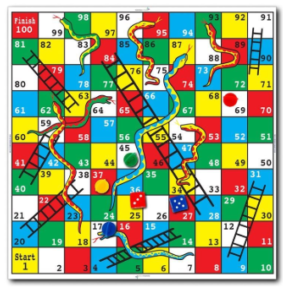
Snakes and Ladders:
If you don’t have a board, there are lots of different printable ones here.
You can make your own rules for this, but an easy rule is if Player A lands on a ladder square, they pick up a card and get to ask Player B to spell it. Conversely if they land on a snake, Player B asks Player A to spell a word. The winner is the first person to reach 100.
Fishing Game:
You can use a shop bought magnetic fishing game, or make your own. Attach individual spellings to the underside of the fish with blu tack. Player A fishes out one of the words, reads it aloud and Player B has a go at spelling it. If they are successful, they keep the fish. If not it goes back in the “pond”. The winner is the one with the most fish at the end of the game.
Scrabble:
Scrabble letters are great for practising spelling rules. For example, if you want to revise the spelling pattern ight, as in bright, light etc, allow your child free reign of the scrabble letters, so that they can form a chosen word. You can use the board as usual and provide scores. The only difference, is that they are allowed to search out the necessary letters. Then move onto another spelling pattern, e.g -ound/ -edge/ -sion/ -ble and so on.
Scrabble can also be used to practice key words (also called sight words or high frequency words). These are some of the most common words in the English language. A number of them don’t follow phonetic rules, so they must be learned individually by heart.
Tubs of magnetic letters can be used in a similar way, with points given for successful spelling.
Twister:
This can be as chaotic as you wish ! Up to four players can play.
Version 1:
The players each chose a colour and a counter of some sort, they aim to be the first to get from one end of the mat to the other. The parent spins the spinner, determining who takes the turn. The parent will also need to supply the word to be spelt (again, this could be from a key word list or a particular spelling pattern or even the weekly spellings). If it is spelt correctly, the player moves one space.
Version 2: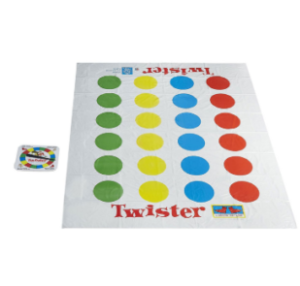
Similar to the original Twister, but words are written on cards then stuck to the circles. When a hand or foot lands on a circle, the player can look at the word, but then it is re-covered and they have a go at spelling it. You can use any words, but I think this would work particularly well with key words.
I’m sure you’ll have lots of fun playing these spelling games and find many more ways to adapt games you already have in the house, to make learning spelling enjoyable.

